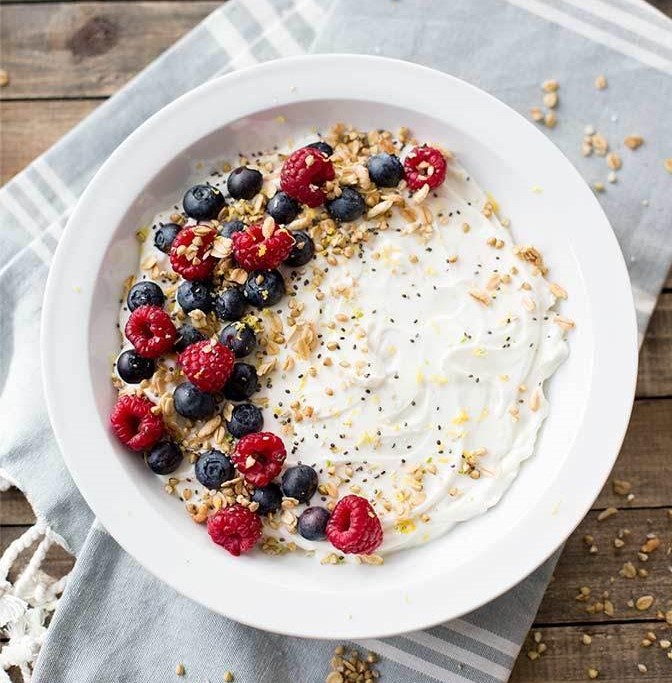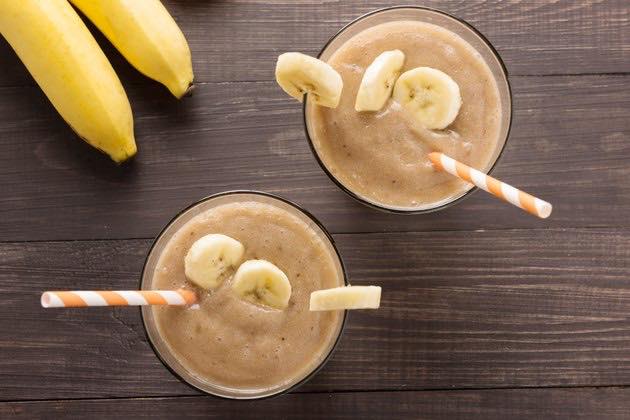Food Combinations That Are Bad For You April 14, 2020 – Posted in: Lifestyle – Tags: Ayurveda, diet, digestion, healthy eating
I am a big fan of dairy products. I love eating eggs with cheese for breakfast. I like to eat fruits but I don’t like sour yogurt. However, whenever I see fruits with yogurt, I will buy and eat it because it looks pretty and healthy. Little did I know that these food combinations were the cause of my indigestion, which I had to resort to taking probiotic supplements. After reading up on Ayurveda, I become more mindful of what I eat. When I stopped the consumption of these bad food combinations, I found that I could do without probiotic supplements.
Below are some food combinations that are bad for me and probably for you too:
Milk and Banana
Milkshake! Everyone’s favourite or is it?
The combination of milk and banana may seem like the ideal one, with the two making up for each other’s nutrient deficits. Milk is loaded with proteins, vitamins and minerals, but lacks vitamin C, dietary fibres and carbohydrates. Banana has all of what milk is lacking, and also known to keep your skin beautiful and glowing. But do you know that these two can wreak havoc when they enter your body together?
As far as Ayurveda is concerned, every food has its own taste (rasa), post digestive effect (vipaka) and a heating or cooling energy (virya). Therefore, an individual’s agni or gastric fire determines how well or poorly the food is digested, and right food combinations are of great importance. Ayurveda strictly puts milk and banana in the list of the most incompatible foods.
According to Ayurveda, eating bananas with milk can diminish agni, produce toxins and may cause sinus congestion, cold, cough and allergies. Although both of these foods have a sweet taste and a cooling energy, their post digestive effect is very different. Bananas are sour while milk is sweet. This further causes confusion to our digestive system and may result in toxins, allergies and other imbalances.
Therefore, it is better to avoid blending banana with milk and rather have them separately.
Yogurt and Fruits

Haven’t we heard this saying that fruits should be eaten two hours after or an hour before mealtimes? Recently, I’m eating fruits an hour before mealtimes and I find that I can eat more fruits without feeling bloated.
According to Ayurveda, when fruits are ripe and eaten in the proper season and climate, they are pure nectar. They immediately turn into rasa (nutritional fluid) — the first of the seven body tissues. Fresh ripe fruit requires practically no digestion and helps to increase ojas, the finest by-product of digestion that enhances immunity, happiness, and strength.
Fruits digest quickly. Other foods, such as yogurt, meat, peanuts and other heavy foods digest more slowly. While the body is trying to digest these other foods, bacteria quickly ferment the fruit, causing gas, bloating & toxic build-up.
For example, sour fruits on your yogurt parfait sounds like the healthy choice, but this food combination can actually slow down digestion and actually alter intestinal flora. In fact, this particular duo can also produce congestion, colds and allergy-like symptoms. So, avoid eating fruits with yogurt.
Eggs

We know egg whites are a great source of protein and yellow part is a rich source of fat. The egg yolks are a hearty and nourishing tonic pacifying Vata energy but aggravating Kapha energy. Egg yolks are heating, and mildly aggravating to Pitta. Similar to meat, eggs are Tamasic foods. Ayurveda strongly discouraged eating eggs because it aggravates the physical and emotional fierceness. Eggs are completely avoided since several centuries ago.
Another reason why yogis avoid eggs, meat and fish is because of the karma they carry. The karma of eggs is less bad than the karma of meat as the animal is of course not killed for food. Karma also depends on the kind of eggs you get. By buying eggs from closed cage chickens you are actively contributing to a twisted system and you are going against animal welfare. *1
In case you think that Ayurvedic diet is so prohibitive, let’s consider this : Ayurveda’s perspective is based on balance; instead of forbidding a particular kind of food, let’s think in terms of favouring another type of food, shall we?
The Ayurvedic diet do sometimes recommends eggs for Vata types, who tend to be naturally thin and require more protein foods to ground themselves. Pitta and Kapha types can also consume eggs, but they do not require them as much as Vata types. (Want to find out if you are Vata, Pitta or Kapha? Click here to do the Dosha Quiz)
Eggs can be heavy to digest. Here are a few tips to make them easier on your stomach and gut*1:
- Avoid mixing eggs with dairy. (Do you have memories of eating eggs as a child and having to drink a glass of milk with your meal and having the most awful burps afterwards. Kids know!). No eggs + cheese together either…
- when you have an omelet or scrambled eggs, add as many fresh herbs and spices as you want to aid digestion: coriander, parsley, chives, spring onions,…
- when you have a soft boiled egg you can add a pinch of cumin, it’s very tasty!
Doctors and scientists may tell you that the above claims have no legitimate science behind them, and are based on misunderstandings of the way digestion works in the human body. What I would suggest is to be mindful of what you eat and how the body feels after each meal. When you become more aware, you can decide by yourself on which food combinations are bad for you and which ones are good for you. Your health is in your own hands. Don’t leave it in the hands of others.
Note *1 : https://www.foreversunday.org/ayurvedic-properties-of-eggs/
 About the Author
About the Author
June Lin is the founder of Juneberries Haven.

